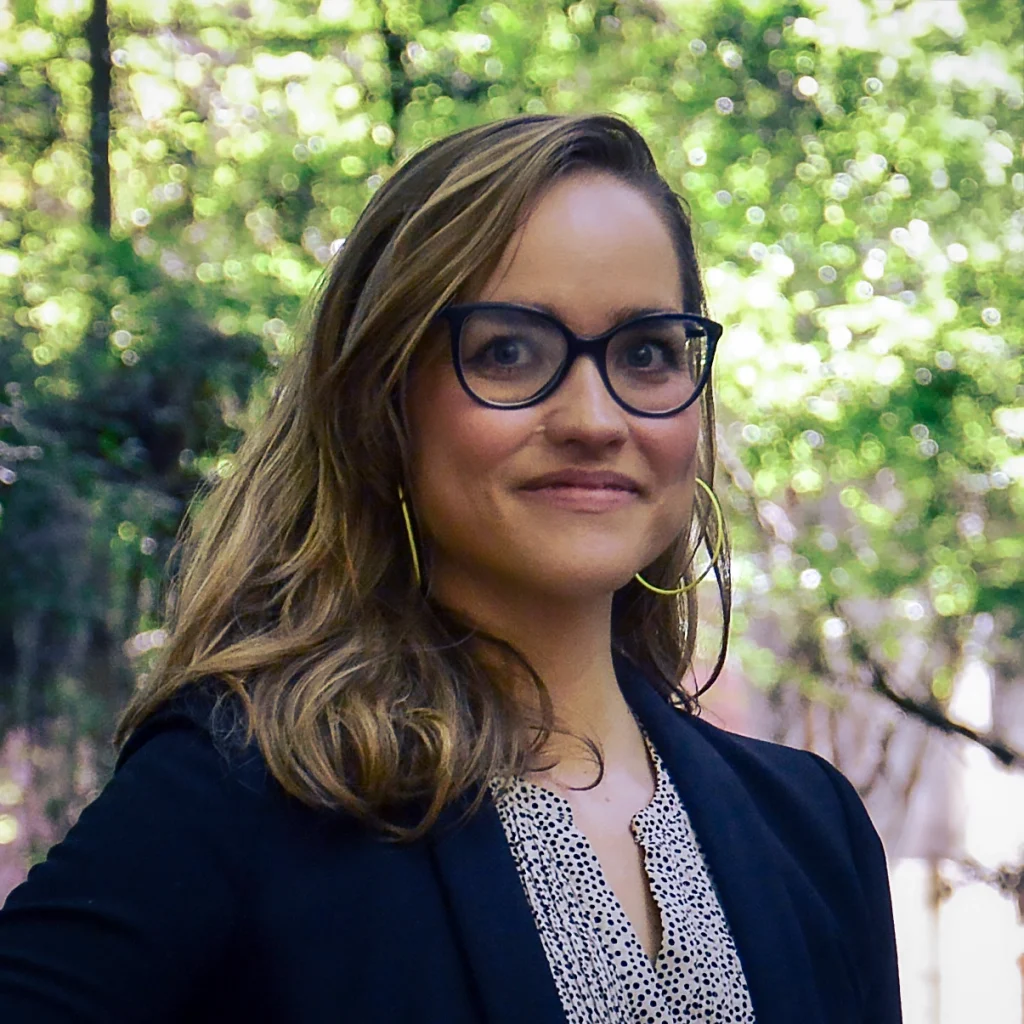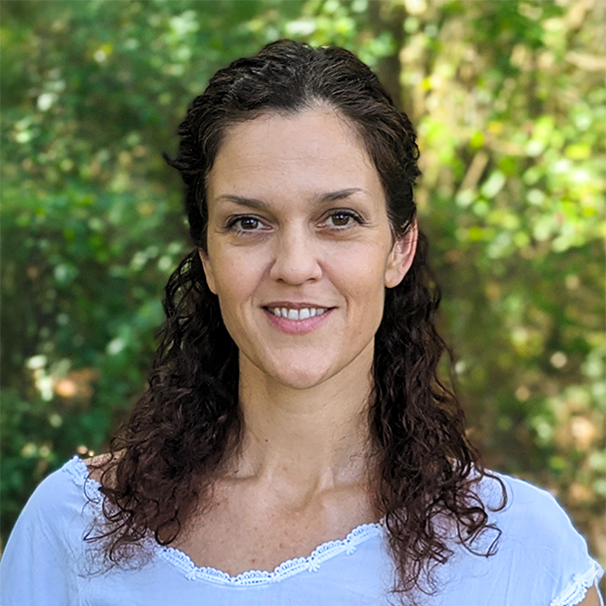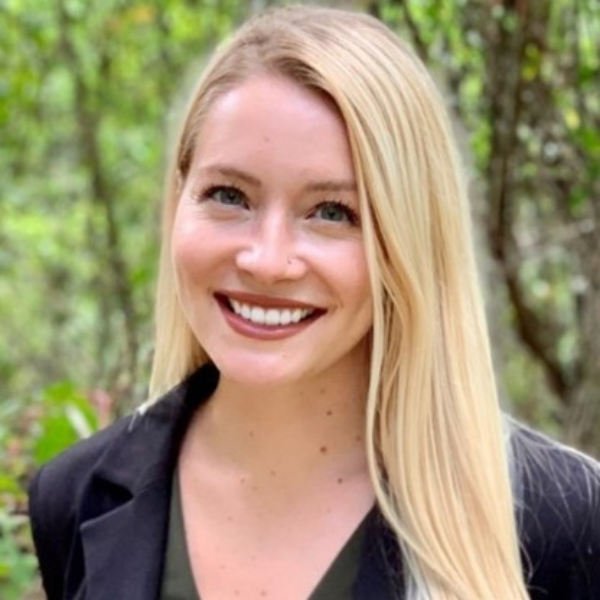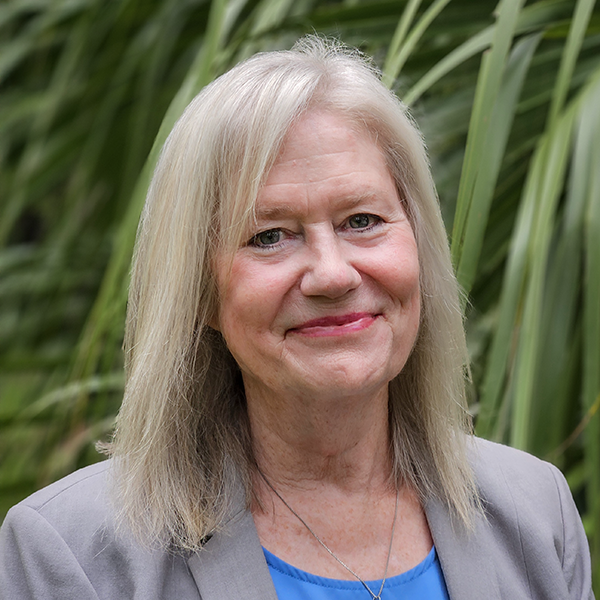CBEHR Leadership, Staff & Advisory Board Members
Meet the leaders, staff and Advisory Board Members of the Center for Behavioral Economic Health Research

Meredith S. Berry, M.S., Ph.D.
CBEHR Scientific Director
Associate Professor, Department of Health Education and Behavior, Department of Psychology
Dr. Berry is an experimental psychologist and directs the Behavioral Pharmacology and Decision-Making Laboratory. Her primary research areas include: (1) Basic processes of operant reinforcement, learning, memory and behavioral economics often in the context of drug misuse and other health-related behaviors; (2) the intersection of acute and chronic pain, mental health, and medical and nonmedical substance use; (3) the evaluation of abuse liability and behavioral and cognitive effects of various drugs; and (4) the intersection of human and environmental health, benefits of nature exposure, and environmental conservation.
Closely related to her work on the intersection of human and environmental health, she is exploring novel applications of the benefits of nature exposure on drug misuse. Her current research focus stems from a foundation of preclinical and clinical training in behavioral pharmacology and basic and translational behavioral research in decision-making and behavioral economics.
Dr. Berry is the recipient of numerous early-career scholarship, fellowship, research and grant awards including awards from the National Institute on Drug Abuse and the National Science Foundation. She is recipient of several national and university research excellence awards, including the B.F. Skinner Foundation New Researcher Award for basic research (American Psychological Association Division 25), which honors innovative research in behavior analysis, and the Early Career Psychopharmacologist Award (APA Division 28 ), which honors original and meritorious psychopharmacology research. Her research is frequently covered in popular press news outlets such as NBC News, Scientific American, Pacific Standard Magazine, Fast Company Magazine and The Huffington Post. She serves as an Associate Editor for the Journal of the Experimental Analysis of Behavior and as a Consulting Editor for Experimental and Clinical Psychopharmacology. Dr. Berry previously served as the CBEHR Scientific Co-Director.

Nichole M. Scaglione, Ph.D., CHES
CBEHR Executive Director
Assistant Professor, Department of Health Education and Behavior
Dr. Nichole Scaglione is the director of HEB’s Sexual Assault and Alcohol Prevention Research (SAPR) Lab, where her team studies the risk and protective factors that affect substance misuse and sexual assault risk in adolescents and young adults.
Her research is grounded in theories of behavior change, with specific focus on both planned (i.e., intentional) and reactive (i.e., socially driven) decision-making processes associated with increased risk or the prevention of negative outcomes. She uses findings from her etiological research to inform the design and evaluation of innovative interventions to prevent substance use/misuse and sexual assault victimization, revictimization and perpetration. She was selected as one of 10 Excellence Awardees for Assistant Professors at the University of Florida in 2022.
Dr. Scaglione previously served as Chair of CBEHR’s Education and Training Committee, which oversees the development and administration of the CBEHR pilot research and travel awards.

JeeWon Cheong, Ph.D.
Director, CBEHR Methodology Core
Associate Professor, Department of Health Education and Behavior
Dr. JeeWon Cheong is a quantitative social psychologist, who has two lines of research: (1) methodological research in mediation analysis, and (2) research in substance use and related risk behaviors among adolescents and adults.
An expert on mediation analysis and longitudinal modeling, she has published multiple peer-reviewed journal articles and handbook chapters on methods for testing mediation, with a focus on longitudinal mediation. Her substantive research focuses on risk and protective factors of substance use and related risk behaviors, as they can be targeted to modify in prevention/intervention settings and explain underlying mechanisms of how programs work. She has been a lead methodologist on multiple NIH and CDC grants; worked with large-scale longitudinal prevention studies for children and adolescents; and investigated the role of social environmental factors, particularly parents and peers, in shaping the developmental course of adolescent substance use.
In her capacity as Director of the CBEHR Methodology Core, Dr. Cheong oversees the development and implementation of a data set archive and review process to offer secondary data analysis opportunities to qualified faculty and student investigators.

Manju Karki, M.P.H.
CBEHR Research Coordinator III
Manju Karki is a native of Nepal and holds an MPH in Epidemiology from the University of Michigan in Ann Arbor. She has been working at the University of Florida for over a decade in different departments managing different health research projects.
Prior to working at UF, Manju worked on a wide array of public health projects in settings ranging from academic institutions, non-profits, to the United Nation Organizations in different countries. Manju’s past research experiences have been in substance use, harm reduction, HIV/AIDS, women’s health and Florida Medicaid. Manju is passionate about community health projects.
Her primary role is to lead and manage the NIAAA research project Digital Motivational Behavioral Economic Intervention to Reduce Risky Drinking Among Community-Dwelling Emerging Adults (UF Horizons Study) and provide support to the CBEHR activities.

Shahar Almog, Ph.D.
CBEHR Postdoctoral Associate
Dr. Almog received her doctoral degree from the University of Florida under the mentorship of Dr. Meredith Berry. Her dissertation research focused on the effect of natural and built environments on substance use-related decision making within the behavioral economic framework. She continued to study real-world medical use of ketamine for psychiatric and pain conditions, assessing the risk for non-medical use among patients.
Dr. Almog is continuing her training in pharmacological and nonpharmacological approaches for treating PTSD in veterans at Florida Atlantic University.

Lesleigh A. Stinson, Ph.D., BCBA
CBEHR Postdoctoral Associate
Dr. Stinson’s research interests lie in alcohol misuse, excessive social media use, and behavioral economic-informed analyses and treatment methods. Trained as a behavior analyst, she is also interested in quantitative models of choice behavior.
Dr. Stinson’s recent dissertation involving a novel application of contingency management to reduce excessive social media use was awarded several awards, including the B.F. Skinner Student Research Award from the Florida Association for Behavior Analysis. As a Postdoctoral Associate with CBEHR, she is currently working on research that is focused on behavioral economic treatments for and analyses of alcohol misuse.

Justin T. Van Heukelom, Ph.D.
CBEHR Postdoctoral Associate
Dr. Van Heukelom received his doctoral degree in Psychology at the University of North Carolina Wilmington under the primary mentorship of Dr. Raymond Pitts.
His research examines behavior-analytic approaches to understanding and treating substance misuse using both human and nonhuman translational research approaches.
As a current postdoctoral associate at CBEHR, Dr. Van Heukelom is investigating alcohol misuse and its treatment among community-dwelling emerging adults.

Maribel Rodriguez Perez, M.A.
CBEHR Newsletter Editor
Maribel is a fourth-year PhD candidate at the University of Florida working under the supervision of Dr. Meredith S. Berry in the Department of Health Education and Behavior. Her research focuses on applying behavioral economics to understand human decision-making regarding environmentally sustainable behaviors, particularly through dietary choices.
She was recently awarded the 2025 Innovative Student Research Grant, a national award from the Society for the Advancement of Behavior Analysis and the Association for Behavior Analysis International to support her ongoing dissertation work, which focuses on the use of behavioral economic demand to quantify the valuation of animal product consumption and testing different strategies to reduce consumption.
CBEHR Advisory Board Members
James G. Murphy, Ph.D. (2025-2028)
Professor and Moss Chair of Excellence in Psychology
Department of Psychology, University of Memphis
jgmurphy@memphis.edu
Dr. Murphy is a leading innovator in research aimed at understanding how substance misuse patterns develop, change, and remit during young adulthood and interventions to promote beneficial change. Informed by basic laboratory research on drug administration and by behavioral economic or choice theories, his work spans randomized clinical trials that evaluated the efficacy of brief motivational interventions for heavy drinking emerging adults and laboratory studies that investigated how decision making, economic, and social/contextual variables contribute to excessive drug and alcohol use. These interventions are now being adopted by colleges across the country and are replacing previous models of “alcohol education” that were not efficacious. He directs the HABIT Laboratory at the University of Memphis.
Justin C. Strickland, Ph.D. (2025-2028)
Associate Professor of Psychiatry and Behavioral Sciences
Johns Hopkins University School of Medicine
Behavioral Pharmacology Research Unit
jstric14@jhmi.edu
Dr. Strickland’s research focuses on the use of behavioral economics as a theoretical framework to address issues of public health significance to include addiction and sexual health. Dr. Strickland’s program of work focuses on developing novel interventions for substance use and substance use disorder applying behavioral economics and using translationally relevant designs from preclinical animal research, human laboratory assessment, and clinical trials. He also is interested in the behavioral mechanisms underlying cannabinoid and psychedelic drug effects and potential treatment efficacy. He is on the editorial board of several leading journals in the field, is Associate Editor (Behavioral Pharmacology) for Drug and Alcohol Dependence, and is on the Board of Directors for the College on Problems of Drug Dependence (CPDD).
Rudy E. Vuchinich, Ph.D. (2025-2027)
Professor (ret.), Department of Psychology
University of Alabama at Birmingham
rudyvuch@gmail.com
Dr. Vuchinich is a leading scientist and early pioneer in making seminal connections between the basic science of behavioral choice and applications to human behavioral disorders that involve choices between sooner smaller rewards and later larger rewards, most notably choices involving substance use and substance-free alternatives. His research spans human laboratory experiments on determinants of intertemporal choice involving substance use and longitudinal studies of recovery and relapse among individuals with substance use disorder. His contributions include conceptual articles on the topic and several edited books that sparked the now robust adoption of behavioral theories of choice and behavioral economics as a key organizing framework in the field of substance misuse and other health behaviors. He is a fellow and past president of the American Psychological Association Division 50 Society of Addiction Psychology. In addition to his academic accomplishments, he served as a psychologist at three Veterans Administration Medical Centers in Alabama and Florida.
Katie Witkiewitz, Ph.D. (2025-2027)
Distinguished Professor of Psychology, Department of Psychology
Director, Center on Alcohol, Substance use, and Addiction
University of New Mexico
katiew@unm.edu
Dr. Witkiewitz is nationally and internationally recognized for her research on harm reduction, recovery processes, and mindfulness-based relapse prevention interventions for addictive behaviors. She directs the Addictive Behaviors and Quantitative (ABQ) Research Lab, and a key feature of her work is applying advanced quantitative research methods to better understand changes in alcohol and drug use behavior over time. A major contribution is her work demonstrating that reductions in alcohol use can lead to substantial improvements in physical health and quality of life and that moderation drinking goals tend to improve early treatment retention. Dr. Witkiewitz is a fellow and past president of the American Psychological Association Division 50 Society of Addiction Psychology, editor for the journal Psychology of Addictive Behaviors, and a member of the Board of Directors for the International Society for Biomedical Research on Alcoholism.

Jalie A. Tucker, Ph.D., M.P.H.
CBEHR Founding Director (2016-2025)
Professor Emerita/University of Florida Research Foundation Professor, Department of Health Education and Behavior
A clinical psychologist with public health expertise, Dr. Tucker has over 40 years of extramurally funded research guided by behavioral economics on harmful substance use and related risk behaviors, including HIV/AIDS, using community and treatment populations, with awards from NIAAA, NIDA, CDC, and SAMSHA/CSAT.
Recent projects aim to inform risk reduction strategies with problem drinkers attempting natural recovery and disadvantaged emerging adults. Her current NIAAA-funded “Horizons” study is using digital peer-to-peer recruitment to reach under-served emerging adults and evaluate a brief web-based behavioral economic intervention to reduce risky drinking by increasing future orientation and engagement in pro-social alternatives to drinking.
Dr. Tucker has contributed to 4 books, including Dynamic Pathways to Recovery from Alcohol Use Disorder: Meaning and Methods (Tucker & Witkiewitz, 2022), and over 150 journal articles and book chapters. She is a Fellow of six American Psychological Association divisions (1, 12, 25, 28, 28, 50), was the first elected President of the then newly formed APA Division 50 on Addictions, and served in multiple APA governance positions. Other recognitions include the Division Medal of Honor for exceptional and sustained service to Division 50 – Addiction, 1993-2012, the 2015 Distinguished Scientific Contributions to Clinical Psychology award from the APA Society of Clinical Psychology, and the 2018 Betty Ford award from the Association for Medical Education and Research on Substance Abuse. Dr. Tucker founded the CBEHR in 2016, developed and directed it through 2025, and was instrumental in creating the Behavioral Economics and Health online graduate certificate program approved in 2025.
